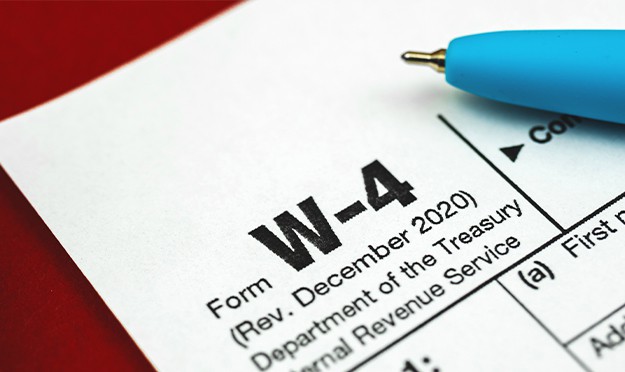Figuring Out Tax Withholding

Are you getting more than $2,000 in your tax refund every year? If you are, you may be overwithholding, which means you’re giving the federal government an interest-free loan for the year. Underwithholding means that, when you file taxes, you owe the Internal Revenue Service (IRS) money.
If you're getting money back, ask yourself two questions:
1. Do you have credit card bills?
2. Do you have an emergency fund to rely on if you become unemployed?
If you answered "yes" to the first question and "no" to the second one, getting a big tax refund is not the best plan. The refund is money you could have used all last year to pay off bills and to beef up your emergency fund.
To find the right amount of withholding so you break even on your taxes, look at last year's tax bill. If the amount you had withheld was close (your refund was small) and you haven't had major lifestyle changes, such as getting married or having a baby, then you're probably safe to leave your payroll withholding the same. If you owed a lot or received a large refund, then you might want to adjust your withholding.
The more allowances you claim on your W-4, the less income tax will be withheld. The fewer claimed, the larger the withholding amount.
If you're getting a large refund, visit your employer's payroll or human resources department and change your W-4 form, which establishes how much your employer withholds for taxes each paycheck. Use this calculator and the tax form you just completed to answer its questions, and see how adjusting your withholding affects your take-home pay. By increasing your allowances, you could see a few hundred dollars more in your paycheck each month.
Now it won't help much if that extra money just slips through your fingers. So, take one more step and set up direct deposit to put that newfound cash into your emergency fund account every payday. Trust me—a full rainy-day fund feels a lot better than a once-a-year tax refund.
Keep in mind that everyone's tax circumstances are different. Work with an independent professional tax adviser or a tax specialist at your credit union before making tax-related decisions.
« Return to "Blog"
